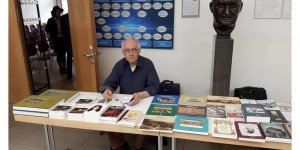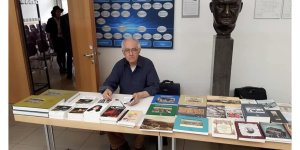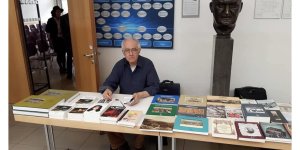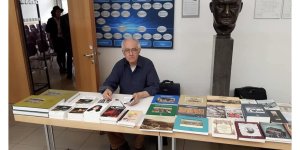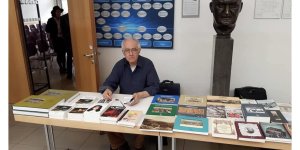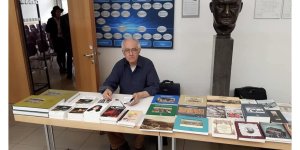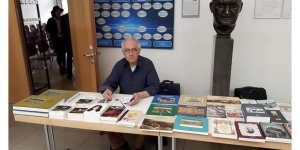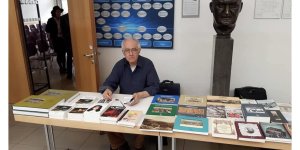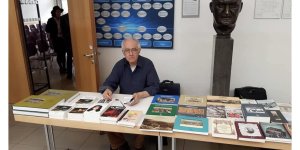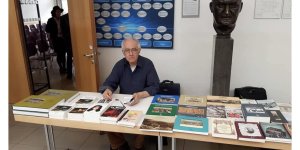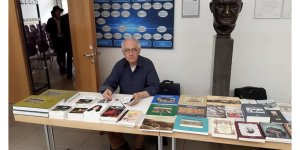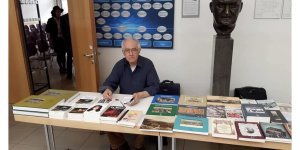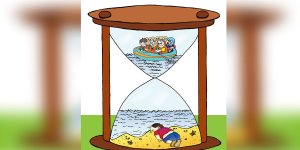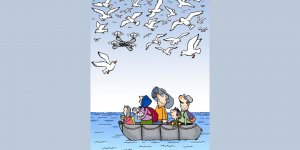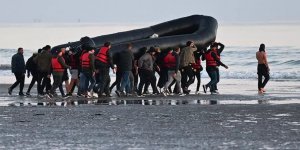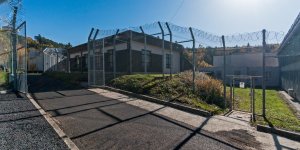Engin Erkiner Wrote THE HISTORY OF EXHIBITION FROM BELOW
HISTORY OF EXHIBITION FROM BELOW
Engin Erkiner
There is no date, there are dates.
Post-modernism's determination of history has two aspects.
First; While denying history with its general characteristics – it can also be called great history – it emphasizes that the era of great narratives is over, it also eliminates generalization, which is one of the important features of mental activity. Generalizing means finding common features of dissimilars. These features are present in different proportions in each large piece, but it does not follow from this that the pieces are very similar to each other. The whole includes parts that do not conform to its general characteristics, but these are not decisive.
It is possible to compare this to the flow of a big river. It does not exclude the presence of eddies and counter currents in the flow of the river in a certain direction, but the decisive factor is the movement of the big day.
Second; post-modernism can provide a better understanding of the whole by drawing attention to the different and even opposite features of the parts that make up the great - provided that the generalization is not denied but not limited to it.
When this understanding is applied to the subject of exile, it can be said that there is no exile date, exiles have dates. The history of exile consists of combining the common features of many individual histories, which have different characteristics as well as similarities. The existence of a general history of exile does not exclude the existence of multiple dates or a history of exiles, but rather includes.
The subject of this article is an individual history narrative that differs from the characteristics of general history. While it reflects the general characteristics of great history, it also has quite different aspects from it.
The subject can be explained in three stages.
What are the general characteristics of the exile; To what extent do Turkish exiles adapt to these characteristics; What are the dissimilar features of the individual exile history to be told?
People who had to leave their country, usually due to fascist dictatorships, have to start life again in their new country. Their education and profession do not carry their former value. They have to live in a different culture and learn a new language. Years of loneliness and lack of communication are the common features of exiles.
This is a generalization and can lead to misleading results if internal divisions are not taken into account.
For the exiles who had to leave Turkey, if we limit the issue to the post-1980 and European exiles, the important feature of this exile that does not resemble the general can be seen immediately. These people came from one Turkey to another. In the countries they went to, especially in Germany, there was a mass of people who came and settled years ago, mostly workers and different organizations doing political work. They rarely encountered problems such as loneliness and miscommunication. It is an important advantage to come to a large audience where they speak the same language.
This advantage would turn into a disadvantage in the following years and it would be insufficient to learn the language of the country where there were many exiles, even if it was at least 20 years after their arrival.
Here it is necessary to move on to personal history and continue with the dissimilar features of general history.
ARRIVAL AND FIRST YEARS
When I came to Paris in June 1981 after an adventurous journey, I had no idea how what I would learn here and the confidence it would bring would affect my future life. I found myself in the struggle, but there were two important differences from the general – mostly Germany determined in the European exiles: there were hardly any political refugees and the majority of them were garment workers. These people were revolutionaries, or at least open to the left. They were participating in the protests against the fascism of September 12, but their problems specific to Paris – such as the domestic problem – were outweighed. Thus, in the first step, the thought would be settled that the work towards Turkey – including the protest actions – would remain largely in the void without focusing the activities on the problems in the country where I lived. If I had come to Germany first, it would probably have taken me years to reach the same opinion. In the beginning of 1982, we occupied three apartments in Paris and we were met with an unexpected interest. Reporters from major newspapers and TV channels came to the squats, but who would speak? Nobody had enough French. There, I would understand the importance of knowing a valid language in every country – English. Wherever you go, whether there is anyone who speaks the language of the country you come from, it is still enough not to be dumb and to go outside the general line. The fact that the news of the invasion – along with the information about the perpetrators – took place in French and Turkish newspapers, that Le Monde published the long conversation with me, and then that we found good people in French and spoke on television channels, made me think that not small things can be done in a European country, and I have courage for the future. gave. The neck of the political refugee who had to leave his country is sometimes a little bent and sometimes quite bent. He can be accused of leaving the struggle in his country and fleeing, and he defends himself by answering that he will return soon. I've never had this feeling. In an environment where the news of arrests and executions were chasing each other, together with the workers, we did a job that was heard in two countries. While Hürriyet was – naturally – cursing at us, it also announced what we were doing; The situation was better in the French media; not only the workers' housing problem, but also fascism in Turkey came to the fore from time to time. I came to Germany in the autumn of the same year and was surprised by the prevailing understanding of the people. They had only Turkey in their minds and practices, as if they were not living in Germany. As there were many Turkish workers in the country, the second generation was also entering the business life. Immigrant, political refugee designations were perceived as blasphemy, and people were only thinking about the return. The mass of workers, on the other hand, seemed to be persistent – despite their verbally saying the opposite – and political work had to be conducted with this in mind. If a reason is sought, it will be found. I was amazed at the accusation against the small number of people who went to language courses: they have no intention of returning, they are learning languages! What did learning an important language like German have to do with returning? Would they harm the socialist movement if people returned knowing German? The revolutionaries were not lazy, they were running around, but they were afraid to enter a new field such as learning a language they knew would be difficult.
RETURN SUBJECT
Return never leaves the minds of exiles, even after years. Undoubtedly, the turns of the sought person and the one who is no longer sought are different. The former must turn into the existing, albeit narrow, network of political relations. The return of those who cannot do political work is meaningless, it may even be a burden to those there due to the problem of concealment. I did not have such a thought, and this is a different feature from the general exile history. If you are one of the founders of an armed struggle organization, wrote the basic document of the organization, participated in armed actions, escaped from prison, received a life sentence and is an active person in Europe, this state will not forget you. I understood this well from the beginning. Return; it would have happened one day, and if it didn't it wouldn't be a problem. It should be emphasized that; large numbers of exiles returned, and their return had no significant impact on the socialist movement. With the abolition of Articles 141 and 142 at the beginning of 1990, the cases of those tried under these articles were dropped and most of them returned. In addition, with the new execution law, some of those whose cases were dropped would also return. I don't know the number, but even the ones I only know are not few. The European exile of Turkish people includes not only their arrival but also their return. There is a dynamic and constantly diversifying pattern of exile that has not been seen in the history of other countries. (I do not go into details here as the subject will be covered in another article.) If we go back to Germany again...
SECOND GREAT EXPERIMENT
In the 1980s, many socialist intellectuals, writers and other European countries had to come to Europe, especially Germany. In those years when there was no Internet broadcasting, it was not possible for these people to express their views in the few legal publications published in Turkey. Other countries in Germany There was a need for a left-wing literature-culture magazine that exiles in Turkey could also write. I played a decisive role in the publication of such a magazine -in the summer- for 28 years -the magazine was to be published in Europe and Turkey with 56 issues between 1992-2004. So it was possible to do permanent work in a European country whose name is remembered even after many years. Summer has always been a European magazine, although there are some from Turkey, the majority of the authors were from different European countries. Starting from the second half of the 1980s, almost every organization had a legal publication. I know because I am responsible for a few of them in Europe: Without sales in Europe, broadcasting in Turkey would not have been economically feasible and broadcasting would not have been possible with continuous subsidies. I know that the publishing money collected in European countries covers not only printing but also office expenses. It was difficult to collect publication money in Turkey – except for those that could be given to general distribution. In those years, legal broadcasting was a must for an organization and without European sales, I can't say it all because I didn't know all of them, but it was not possible to publish a significant part of it. This alone is a great contribution, not to mention other contributions. For years, I wondered why friends, who are in different organizations in European countries, who are constantly running and who contribute to the structure of the country, do not support the public recognition of their performances.
CORRUPTION HAS NO COUNTRY!
I've heard a lot about the corrosive effect of immigration. It is true, but decay is not unique to Europe, and there are many examples in Turkey. Decay has no country. A socialist is and must be a socialist everywhere. Although the number of those who languished among the European exiles is not small, there are also people who have struggled for years and contributed to the socialist movement to a greater or lesser extent. I have defended for years that these friends have been unfair while evaluating themselves. Living in Turkey is not a positive value in itself, what is decisive is what the person has been doing for years. Those who do their best there appreciate those who do the same in European countries; I know this from different examples for years. It is also necessary to ignore the evaluations of those who have not done anything.
INSTEAD OF CONCLUSION...
In terms of my own history, I can express the following: I came here with great advantages and made good use of them. Having graduated from university, knowing a valid language, growing up in big cities; These are all important advantages. Exile is also the proliferation of man; Let's say it's one person when it comes, years later, let's say there are three people. Revolutionary struggle also means investing in yourself and getting results. The years spent in France and Germany have brought me a lot. I learned another valid language, completed two more universities, wrote 24 more books on top of the two I wrote while in Turkey, and published an unforgettable magazine for 28 years. I was able to reach every resource I wanted about reading and learning. I did not try to convince anyone, and now I have no such intention. Regardless of your location, performance is decisive. I'm not sure if I could have done half of these in another geography. People should own up to what they do. Some of our friends are affected by the external evaluations made about exile, and I have difficulty in understanding this. Quality paves its way everywhere, sometimes it may be late, but it does. It is necessary to rely on this and not to be unfair to yourself in the first place. Let's not forget, we are not living 30 years ago. Communication possibilities have improved tremendously; It has become easier to learn where and what a person is doing. A large part of the socialist left in Turkey, which closed its eyes to European exiles for years, began to see this area in large part, if not completely. A large number of people came to European countries, and they still do. They come regardless of what anyone thinks. In the coming years, the September 12 exiles, those who came later, and those who preferred "voluntary exile" despite the absence of economic and political problems in the country will play a greater role in Turkish politics. It is necessary to see this, to think about the requirements, and to ignore those who are stuck with the evaluations of the previous years.


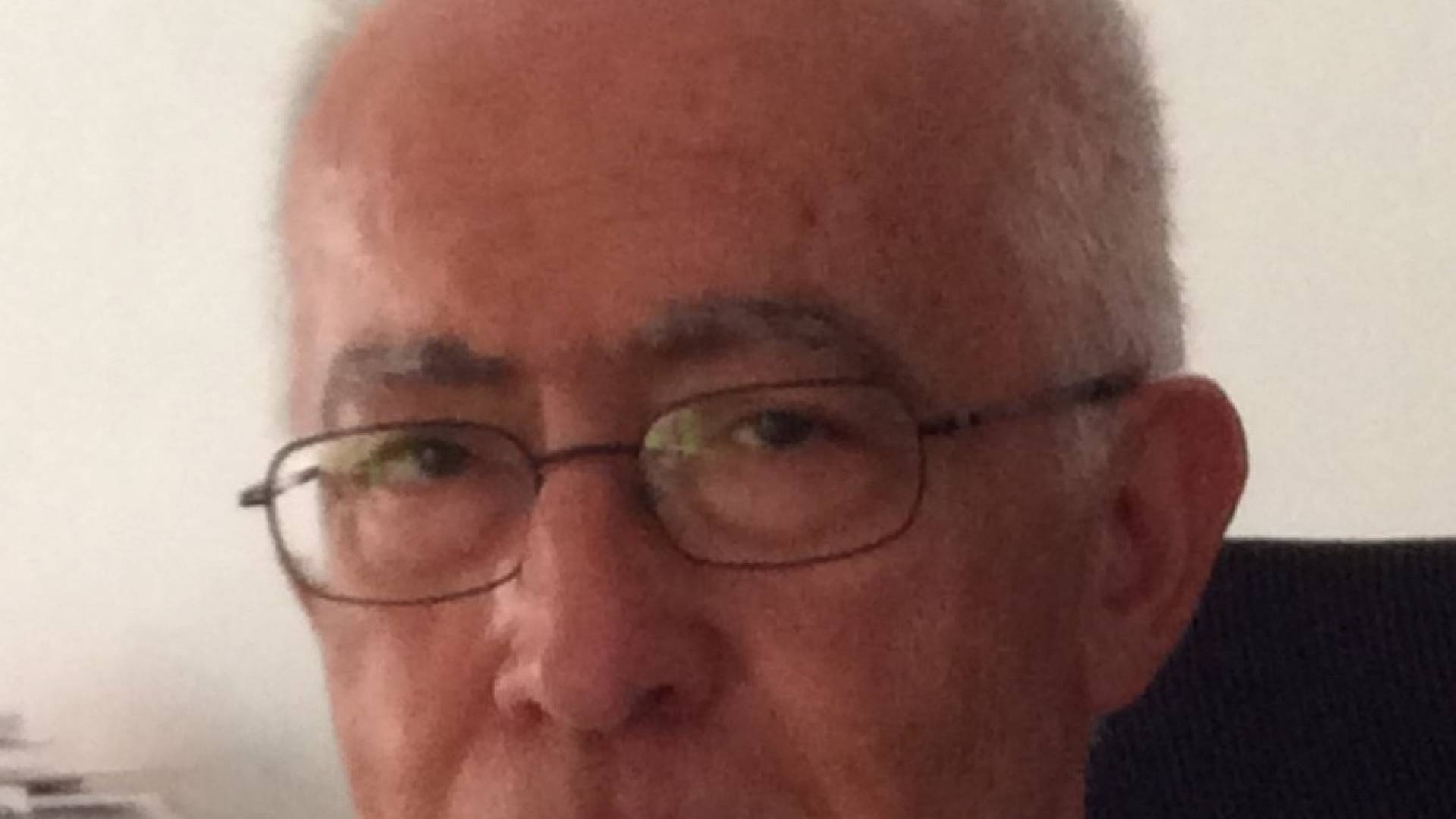
 Türkçe
Türkçe 